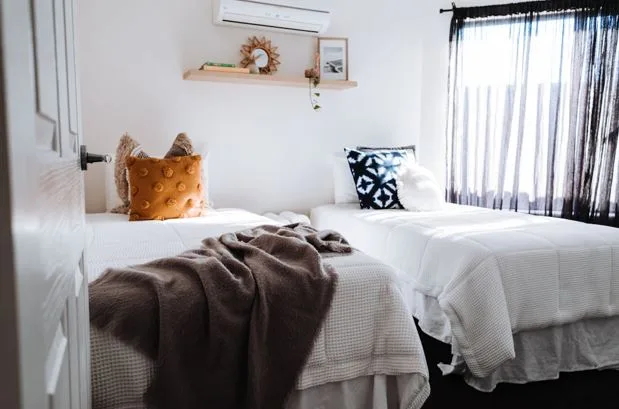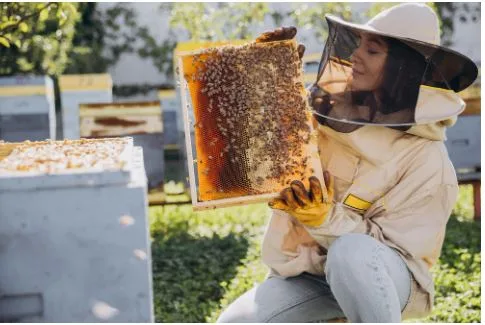What Homeowners Should Know About Indoor Air Quality
Most people think about the air outside when they hear the word “pollution.” But the air inside your home matters just as much, sometimes more. Indoor air can collect all kinds of things you don’t see. That includes dust, allergens, and chemical particles from common household items.
In a quiet town like Deerfield, NJ, it’s easy to assume that your home’s air is fine, especially if everything looks clean. But the air inside can still be stale or full of things that trigger allergies. Local weather makes it tricky, too. Cold winters mean windows stay closed for months. Hot, humid summers push everyone to run their air conditioning full-time. This keeps homes comfortable but can lead to stale indoor air if it’s not being filtered well.
Many homeowners in Deerfield have older homes with tight insulation. That’s great for energy use, but it can limit air flow. If your home traps air, anything in it—like smoke, moisture, or pet dander—sticks around longer. This affects how the air smells, how it feels, and even how you breathe.
That’s why many residents turn to professional help like an HVAC service in Deerfield, NJ, to check airflow, duct cleanliness, and filter function. Local HVAC pros understand how the area’s seasons affect home systems. They can help you spot small issues before they grow, like leaks in ductwork or buildup inside vents.
Good indoor air isn’t just about comfort—it helps people stay healthy. For families with kids, older adults, or people with allergies, it makes a real difference.
Why Local Climate and Homes Matter
The local weather plays a bigger role in your indoor air than you might think. During the winter, homes are sealed tight to keep heat in. But that also means less fresh air is coming inside. In the summer, you’re running the AC to fight the humidity. That cool air feels nice, but it doesn’t bring in anything fresh unless your system includes proper ventilation.
Over time, indoor air starts to recycle the same particles. Cooking, showering, spraying cleaners, and burning candles all release tiny particles into the air. Without a way to flush them out, they stay in the rooms where you live, sleep, and breathe.
Even activities that seem harmless—like painting a wall or bringing in new furniture—can add to the problem. These items can give off chemical fumes known as VOCs (volatile organic compounds), which build up over time.
If you live in an older home, there’s an even bigger chance your system may not be set up to handle all this. Older HVAC systems might not filter as efficiently. Some might have ducts that leak or fans that don’t pull air evenly from room to room.
This is where a home inspection can help. HVAC professionals can check for clogs, leaks, or airflow problems. In many cases, all it takes is a thorough cleaning or a filter replacement to make a noticeable change in how your home feels.
Common Indoor Pollutants You May Overlook
Most people know about outdoor air pollution, but indoor air has its own set of problems. Common pollutants can come from everyday items you already use. Dust and pet dander are two obvious ones. But many others are less visible.
Cooking releases grease particles and smoke. Cleaning products may give off chemicals that linger. Even air fresheners and candles release substances that can lower air quality. These pollutants gather fast, especially if you use them often or in small spaces with little airflow.
New furniture, flooring, or paint can also release fumes for weeks. These are called VOCs. You can’t always smell them, but they can still affect your breathing over time. Mold spores are another issue. They grow in damp places like basements or around vents and can spread through your HVAC system if not treated.
It helps to be aware of how these pollutants enter your space. Knowing the source is the first step toward cutting down what floats around your home.
Signs That Your Air Quality Might Be Poor
Sometimes it’s hard to tell if your indoor air needs improvement. But your body often gives clues. If you find yourself sneezing more at home than outside, it might not be seasonal allergies. Frequent headaches, dry skin, itchy eyes, or a scratchy throat can also point to poor air quality.
Take note of smells too. A musty or stale scent might mean your home isn’t getting enough airflow. Moisture on windows or vents can signal too much humidity, which helps mold grow. Dust buildup on surfaces—even after cleaning—can mean your HVAC system isn’t catching particles the way it should.
Kids and older adults might react more to poor air. If you notice your family members feeling tired or congested at home but better when outside, your indoor air might be part of the problem.
What You Can Do on Your Own
You don’t need to wait for a professional to take action. There are a few simple steps that help freshen up your indoor air. First, open your windows when the weather allows. Letting air flow for even 15 minutes a day can make a difference.
Change your HVAC filters regularly. Most homes do well with new filters every two to three months, depending on usage and pets. Vacuum and dust weekly to help reduce allergens. Use a vacuum with a HEPA filter if you can.
Air purifiers work well in bedrooms or rooms with limited airflow. They’re easy to set up and help trap particles you might miss during cleaning. Controlling humidity also matters. Use a dehumidifier in basements or during summer months to cut back on moisture. During winter, a humidifier can help keep dry air from irritating your skin and throat.
Stick to natural cleaners when possible. Products with fewer chemicals release fewer pollutants into your air.
When to Call a Pro for Help
Some air problems are hard to solve on your own. If you’ve tried basic steps and still notice issues, it might be time to call in a professional. Visible mold, uneven heating or cooling, or stale air that won’t go away are good reasons to ask for help.
Technicians can check your entire system, from filters to ducts. They’ll know if your setup needs cleaning or if any parts are failing. Some companies offer long-term maintenance plans that include filter replacements, seasonal tune-ups, and air quality checks.
You’ll also benefit from their tools and training. Pros can measure airflow and humidity more accurately than a basic home device. Their advice can help you breathe easier and feel more comfortable all year.
Good indoor air matters more than people realize. It affects how you feel, how well you sleep, and how your home smells and functions. By paying attention to the small details, taking a few simple steps, and calling a pro when needed, you can create a cleaner, safer living space. Your home should feel like a place you can breathe easy every day.






